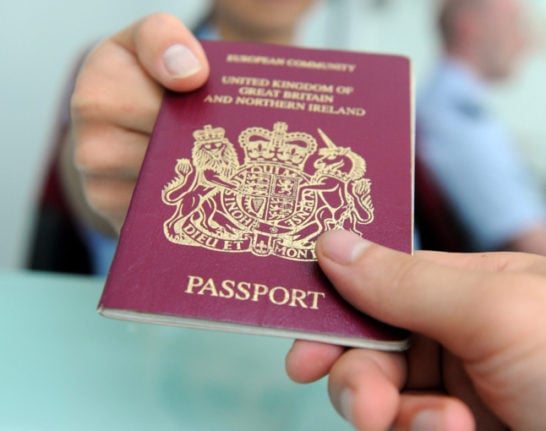The change came with little fanfare in a minor tweak to a memo on the Interior Ministry’s website, and was soon picked up by citizens’ rights campaign group British in Germany.
The memo reads: “Until the end of 2021, you can trust a statement by UK nationals and their family members to have a right of residence under the Withdrawal Agreement.
“You can at least always assume that this is the case if the entitled employee was living in Germany on 31st December 2020.”
Previously, officials had only advised employers to follow this “trust” policy until June 30th – the date by which British citizens are advised to register with their local foreigner’s office (Ausländerbehörde).
READ ALSO: What happens if Brits in Germany don’t apply for post-Brexit residence card by deadline?
While registering with the foreigner’s office is not a prerequisite for securing post-Brexit Withdrawal Agreement rights in Germany, it is currently the only way for Brits to be issued a residency card, which confirms those rights.
However, with around a week to go until the June deadline, many British citizens in Germany are still waiting for their card.
Brits face long wait for residence card
With the revised guidance for employers, the Ministry appears to be acknowledging the long lag that many Brits have faced between their post-Brexit appointments and receiving their new residency title.
While most German states have been conducting appointments since the start of the year, some Brits have been left waiting up to three months for their card to arrive, with no way to prove their right to remain or work in the country.
In a survey carried out by The Local on Brits’ experiences of securing their rights, around three quarters of respondents said they had already had their appointment, but only half of these had received their documentation.
READ ALSO: Postcode lottery: Brits in Germany on what it’s like to apply for the post-Brexit residence card
“If your employees are covered by the Withdrawal Agreement, they are entitled to work for you, even if they do not have the relevant document,” the Ministry for the Interior said in a statement to employers.
“If you know that your employee is entitled, you are not required to take any further steps.”
British citizens are covered by the Withdrawal Agreement if they were resident in Germany before January 1st 2021, when the post-Brexit transition period officially ended and Britain left the Single Market and Customs Union.
This gives them broadly the same rights as EU citizens to live and work in Germany, but without onward free movement rights around the European Union.
According to the Ministry, the “trust” policy should apply to both current UK employees who were working for the company before the cut-off date, and new employees who are due to start this year.
“In some cases, it may take the authorities until the end of 2021 to finalise the processing [of the residency document],” they said.



 Please whitelist us to continue reading.
Please whitelist us to continue reading.
Member comments